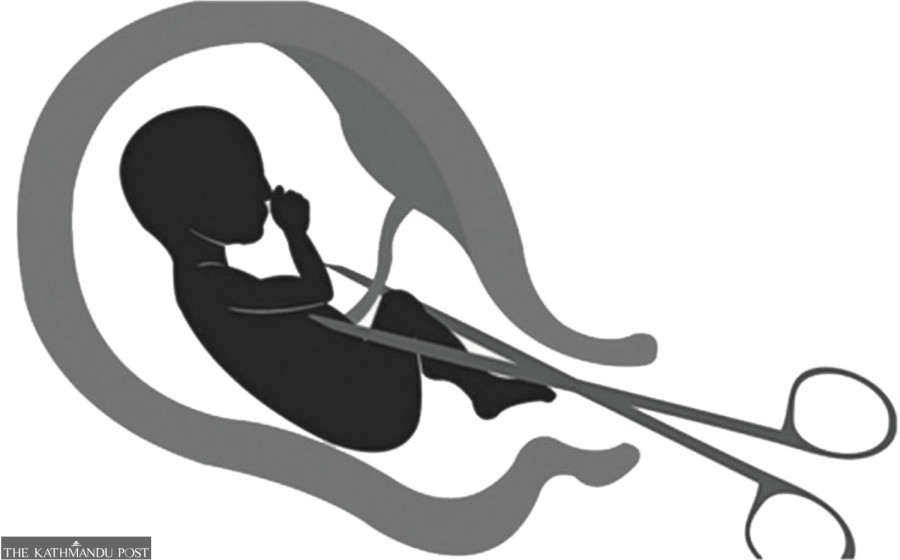Editorial
Righting reproductive rights
Each one of us needs to be educated and respectful of women’s rights to their bodies.
A recent report published by the United Nations Population Fund (UNFPA) has revealed that almost half of the pregnancies in Nepal are unintended, almost two-thirds end in abortion, and 45 percent of all abortions are unsafe, causing 5-13 percent of all maternal deaths. As per the report, around 44 percent of the women of reproductive age do not use a modern contraceptive method, which is one of the reasons for unintended pregnancy. Less than 100,000 abortions occur in the country each year, and around 13 percent women and girls between the ages of 15-45 years are subjected to intimate partner violence. Calling such unintended pregnancies an “invisible crisis before our eyes”, the report has pointed out the gender discrimination that is at the heart of the crisis.
The report is significant in that, rather than focusing on the consequences of unintended pregnancies, it lays out the social conditions that lead to such pregnancies in the first place. It makes clear that while there is a possibility of talking about this situation in financial and numerical terms, the magnitude of the problem cannot be quantified unless we talk about the social and psychological damage it has on women, and by extension, on humankind. Notwithstanding the fact that there is a greater access to modern contraceptives in recent decades, that such a huge percentage of women have to bear the burden of unintended pregnancies shows the extent to which women’s rights to their body and opinion continue to be scuttled.
Having legalised abortion in 2002, Nepal allows women to have an abortion up to 12 weeks of pregnancy without seeking a reason, and up to 28 weeks in cases of rape, incest and health complications. However, women still lack access to abortion centres as well as education about safe abortion. Alarmingly, many abortions are conducted by untrained personnel, putting the health and life of the women in danger. It is not surprising that women without agency and empowerment are the ones who seek to have larger families and become victims of unintended pregnancy. There is thus a need to dramatically increase safe sex education and normalise the use of contraceptives so that women do not have to bear the physical and social burden of unintended pregnancy and abortion. The fact that married women who experience unintended pregnancy are less likely to go for an abortion shows that the very notion of sex needs a serious reconsideration.
For that, the first step is to acknowledge women’s autonomy over their bodies, letting them decide when they would want to become pregnant and, if they so wish, to abort the foetus while keeping in mind the medical concerns linked to abortion. Importantly, it is necessary to educate women about their sexual and reproductive health rights. And, of course, it is not just women but each one of us that needs to be educated and respectful of women’s rights to their bodies. It is only when we put women’s choices at the centre while making family planning decisions that we can form an equal society. The time to work towards letting women exercise greater autonomy over their bodies is now.




 19.35°C Kathmandu
19.35°C Kathmandu














